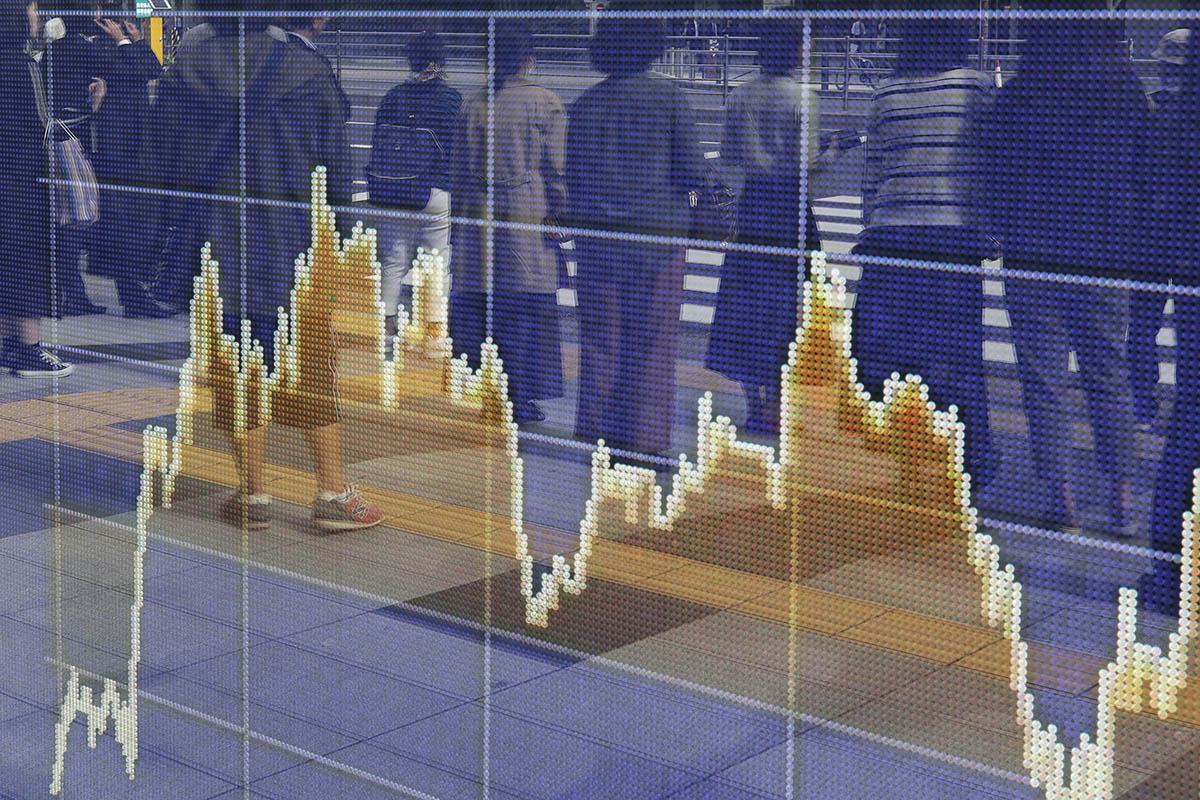Asian stocks are poised for the longest losing streak in two years as the technology, mining, consumer and industrial sectors led declines. Japan equities fell sharply, as did Hong Kong’s Hang Seng Index. The Australian dollar and bond yields tumbled as traders dialed back expectations for higher interest rates after growth missed estimates.
The MSCI Asia Pacific Index is set to fall for eight days, making it the longest run of losses since 2015. American shares fell, with an afternoon swoon wiping out early gains for a second straight day, as investors assessed the impact of proposed tax cuts. Ten-year Treasury yields maintained a slide to 2.34 percent, while the dollar held onto gains. The pound extended declines amid stalled Brexit negotiations, and the yen jumped.
“The adjustment mode is deepening lately in the Japanese stock market,” said Shunichi Otsuka, general manager in the research department at Ichiyoshi Securities in Tokyo. “It’s difficult to buy unless U.S. equities show firmness, even as some high-tech shares are becoming cheap.”
Australia’s third-quarter GDP climbed 2.8 percent from a year earlier versus a forecast of 3 percent, reinforcing expectations for the central bank to stand pat on rates for much of next year. The Reserve Bank of Australia has signaled no near-term policy change as household spending slows amid lofty debt levels and stagnant wage growth.
A surge in global equities that drove indexes to record highs has stalled as investors lock in profits and await catalysts that would provide reason to add to risk assets before the year draws to a close. Friday’s U.S. jobs report is the next big data release on the calendar. House and Senate lawmakers are poised to begin working on compromise tax-overhaul legislation -- a key step in their drive to send a bill with tax cuts for corporations and individuals to President Donald Trump by the end of the year. – Bloomberg
Recommended stories:
